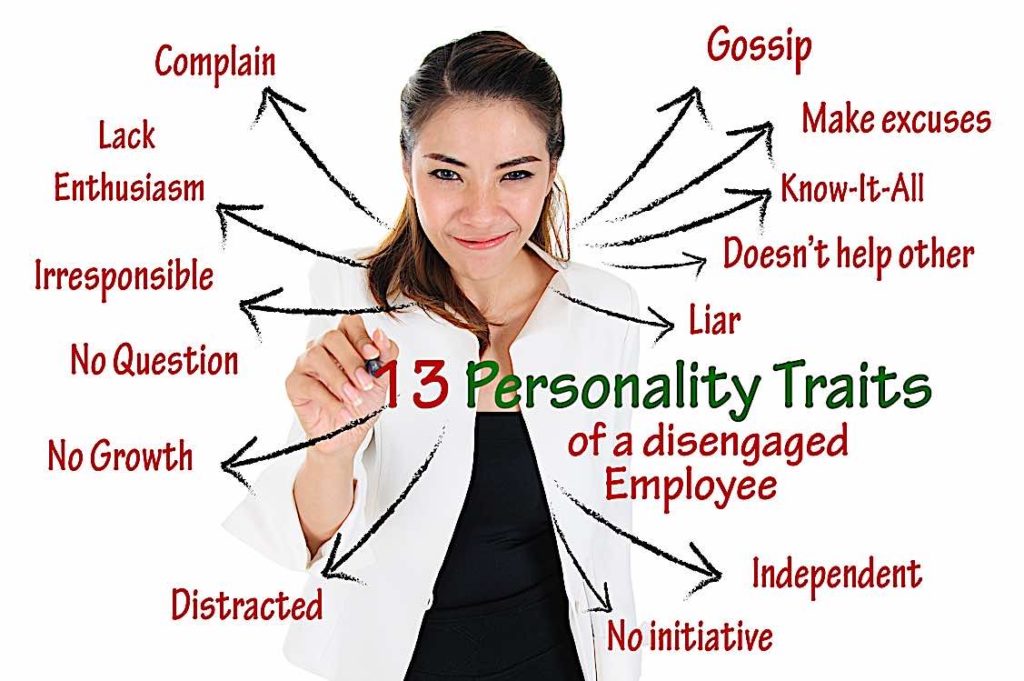
Moral Injuries: How HR Management and employerss can prevent and address moral injuries that result in sickness and resignation
Employers and HR Managers continue the search for strategies, tactics, policies, procedures, and programs to hold on to their top talent during the so-called “Turnover Tsunami” (also referred to as The “Great Resignation”). Data and early success stories indicate that HR Management does not necessarily have to invest in leading-edge technologies and systems, or dial-up salaries and perks. Instead, they can do something that is both profound for their people and profitable for their bottom line: stop inflicting “moral injuries” on employees.
That is the advice — and frankly, the warning — offered in a new article by HR thought leaders Ron Carucci and Ludmila N. Praslova, and published in Harvard Business Review.
“Moral injury is experienced as a trauma response to witnessing or participating in workplace behaviors that contradict one’s moral beliefs in high-stakes situations and that have the potential of harming others physically, psychologically, socially, or economically,” write Carucci and Praslova. “People may be leaving companies…because of more than just feeling burned out or wanting more flexible work arrangements. Many may be leaving because their conscience has been wounded and their innate sense of justice violated.”
The cost of cognitive dissonance
The key takeaway for employers — and one that some may find a very inconvenient truth — is that employees who experience cognitive dissonance are not “moralizing” in the pejorative sense that the term is commonly used today. In other words, they are not necessarily going out of their way to foist their values and beliefs onto others, or stubbornly refuse to sacrifice their position for the greater good of their team or company. They are biologically hardwired to be wounded — not figuratively, but literally — when they firmly determine or strongly detect that an injustice is taking place, to themselves or to others, for which they are playing a part; either by doing something they shouldn’t, or by not doing something they should.
On a personal level, this painful and often agonizing inner tension can manifest as psychological and physical illness. On a workforce management level, it shows up as disengagement, extended sick and personal leave, and resignations; including a growing phenomenon known as rage quitting, which is when employees — including those without a track record of being especially disgruntled — “snap” and angrily walk out on a job.
What employers and HR Managers can do
And so, what can employers do to avoid harming their people — and ultimately, damaging their organization? First off, managers and other leaders should not be terrified of telling or asking employees to do something (and we are talking lawful activities, of course) that they may not personally subscribe to or enjoy. Write Carucci and Praslova:
To be clear, we’re not advocating for leaders to walk on eggshells, vigilantly scrutinizing everything they say in order to coddle people. And yes, sometimes facing difficult circumstances requires that empathy and grace go both ways when bosses aren’t at their best. But as this new world of work unfolds before us and the pact between employee and employer gets rewritten, leaders have to learn and evolve to keep pace.
New world of work “advice”
Specifically, in the “new world of work” employers are advised to:
- Talk to employees and understand what they perceive as fair and unfair.
- Avoid hypocrisy at all costs. Employers who do not work and abide by the same rules and standards as employees should not be shocked when productivity falls and turnover rises — because they, and not their employees, engineered that outcome.
- Ensure that priorities are properly resourced. A frequent way that managers and leaders unintentionally but invariably inflict moral injuries on employees is by telling or asking them to commit to something, but without giving them the resources they need — thereby setting them up to fail.
- Beware of “benevolent gaslighting,” which is when managers and other leaders refuse to meaningfully (or sometimes whatsoever) acknowledge negative issues or toxic people. Over time, these problems and their associated moral injuries become normalized.
- Take accountability and make amends when employees suffer moral harm. This does not mean defending or explaining — or worse, offering a non-apology apology ala “I’m sorry that you were offended.” Rather, it means asking affected employees what can be done to restore lost trust, and what should be done differently in the future if similar circumstances arise.

The Bottom Line
Managers and leaders who run the risk of causing moral injury should not feel that this is yet another daunting challenge that they must overcome (indeed, managers and leaders are as exhausted as everyone else; in some cases, even more). Instead, they should feel empowered and energized with the potential life-changing — and some might say profound — influence they have on their colleagues. Conclude Carucci and Praslova:
Many people in the workplace are hurting. They yearn for a sense of humanity and community to be part of their work experience. And they need leaders who will help protect, honor, and strengthen their personal values and moral center, not put them into positions where they feel forced to compromise or abandon them.
Five years from now, when those you lead today speak about their most important values, will their morally centered convictions have grown because of you, or despite you?


 Our HR solutions experts can recommend the right mix of HR outsourced services to make your entry into Canada easier.
Our HR solutions experts can recommend the right mix of HR outsourced services to make your entry into Canada easier.  Pivotal Employment Management Services co-hires your workforce, simplifying entry of your business in Canada.
Pivotal Employment Management Services co-hires your workforce, simplifying entry of your business in Canada. 
















Your Inbox Is Not a Productivity Tool